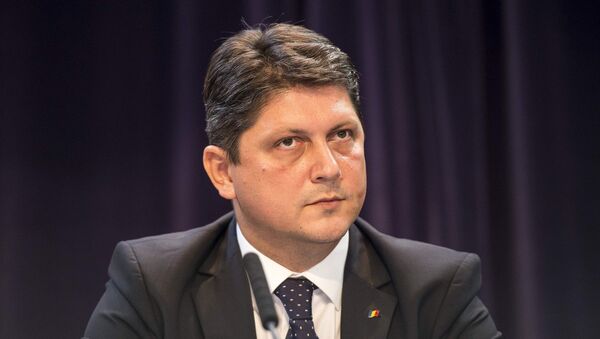MOSCOW, November 10 (Sputnik) — Romanian Foreign Affairs Minister, Titus Corlatean, officially resigned Monday in disapproval of the voting process abroad, stating it was poorly organized.
According to Corlatean, the Foreign Affairs Ministry has already increased personnel for voting wards abroad to about 800 people, as well as the number of voting booths. But poor organization of the voting process prevented many nationals living outside of the country from voting.
“The Foreign Affairs [Ministry] maintains its position that there is no legal base for increasing the number of voting wards abroad,” Corlatean was quoted at a news conference by the Romania Insider. "I cannot give reasons for contesting the outcome of the presidential election runoff on grounds of noncompliance with the law, abroad," Corlatean added.
Romanians in Paris, London, Dublin and Vienna took to the streets on Sunday, demanding more free elections and more polling stations in the upcoming presidential run-offs.
The protesters also claimed that thousands of Romanians living abroad were not able to cast their ballot in the first round of presidential elections on November 2 due to the insufficient number of open polling stations and long queues at embassies.
According to the poll results, Prime Minister Victor Ponta won the first round and received 40 percent of the votes, Klaus Iohannis, the mayor of Sibiu and the president of the National Liberal Party, gained 30 percent. A majority of voters abroad supported Klaus Iohannis (46 percent), whereas Ponta received only 18 percent of votes abroad.
Ponta and Iohannis will compete in the runoff on November 16.



